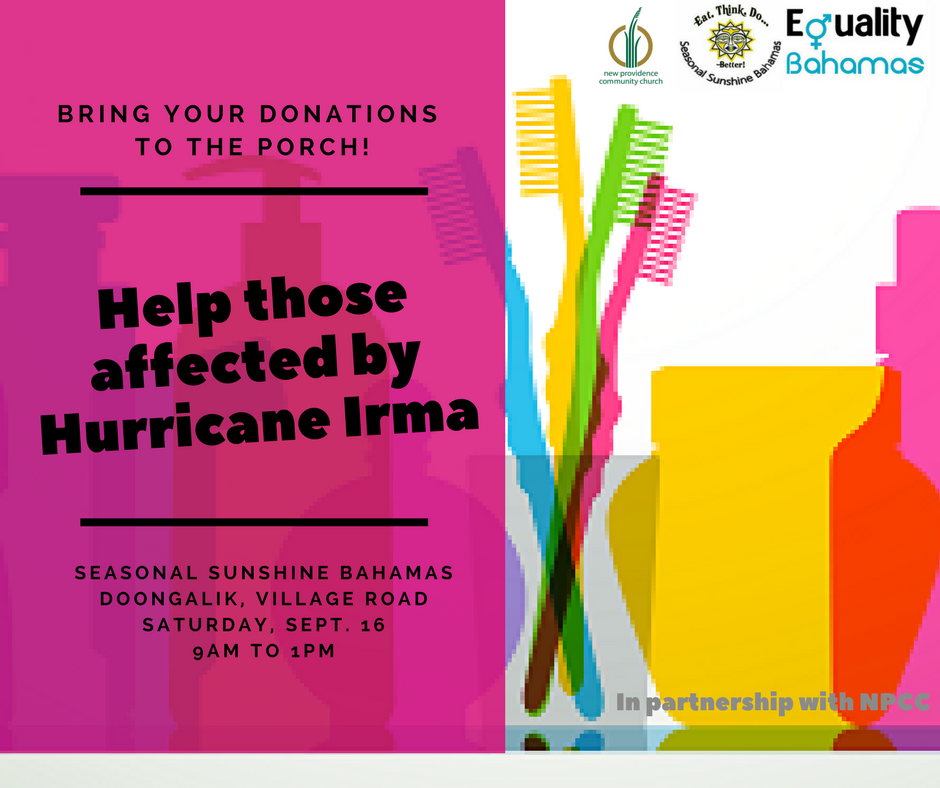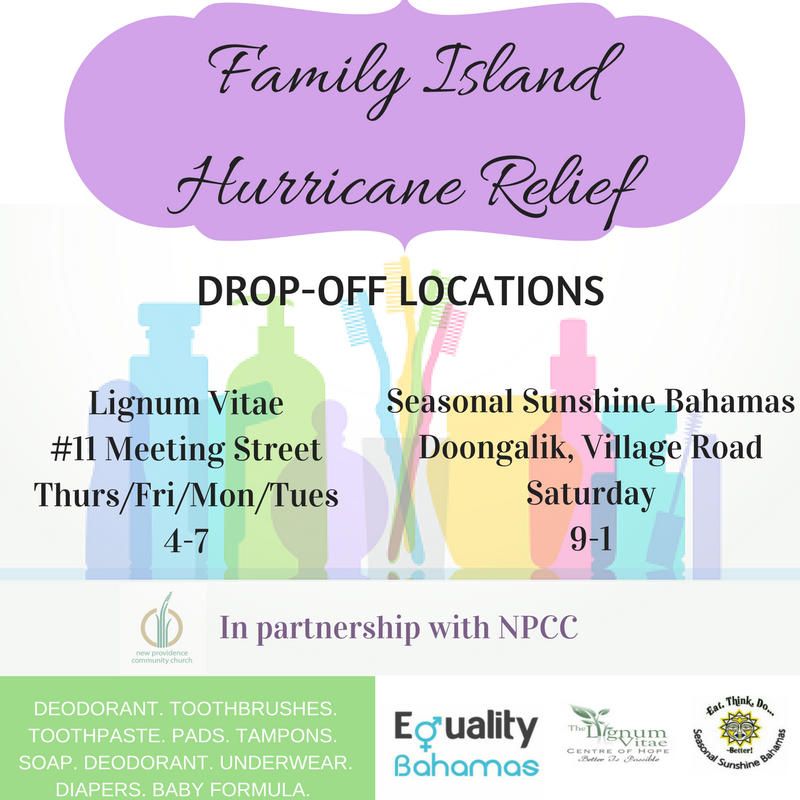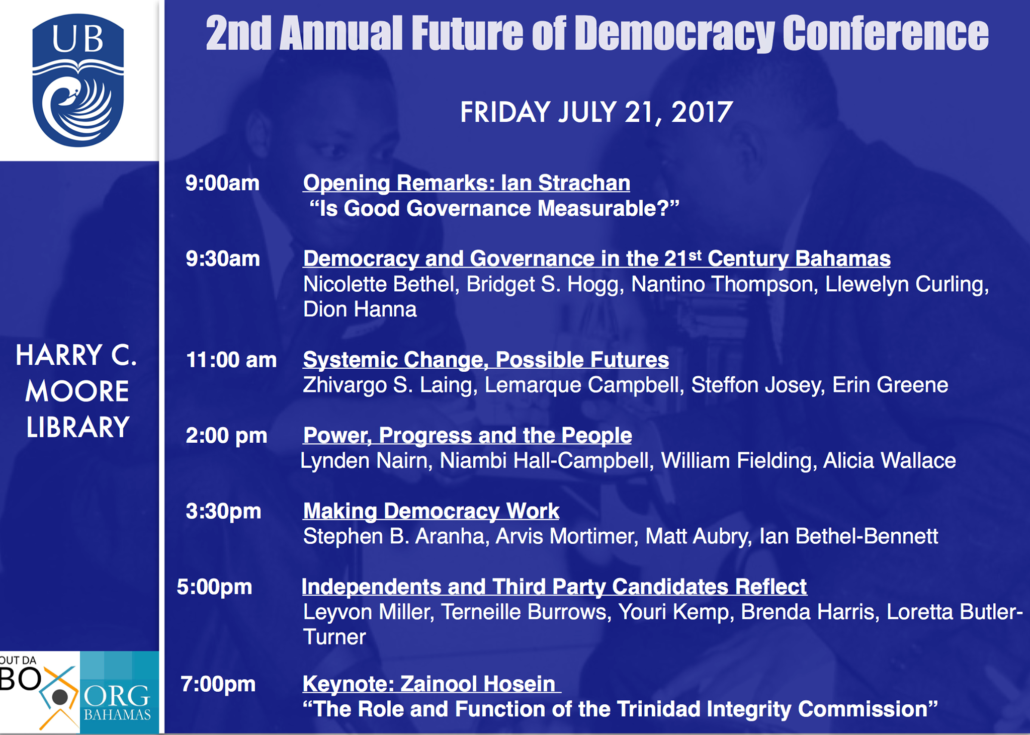Published in Culture Clash — a weekly column in The Tribune — on September 13, 2017
THE past week has been hectic and panic-filled as the country prepared for Hurricane Irma which we expected to impact more islands and people than it did.
We rushed to stores to buy food, water, ice, plywood, and all of the other supplies demanded by this active hurricane season.
For as long as we had electricity and internet, we tracked the storm like meteorologists-in-training, checked on family members and friends, and monitored social media closely. It was the latter that inspired us to activate one of our most popular, prized team sports — national outrage.
We have no shortage of reasons to be angry. Our educational system has been failing for years and continues to go without critical review and transformation. Crime and the fear of crime inspire no innovation in prevention techniques or programming.
The poverty rate is over ten per cent and successive government administrations continue to play numbers games with unemployment by creating temporary jobs as opposed to developing new industries, helping people to up-skill, or encouraging entrepreneurship.
The Disabilities Act has been passed, but the able-bodied continue to park in parking spaces designated for differently-abled people. The abuse of children is so commonplace and normalised that we agree to call it “discipline”. All of this and more, but what really gets us going? People on the internet who make negative posts and comments. These inspire more nationalism than anything else.
From Nellie Day who wrote about the “small beach shacks and huts”, she claimed we live in to the people who complained about Shaunae Miller’s dive to the finish in the 400m at the Rio Olympics, Bahamians are keen to teach non-Bahamians not to mess with The Bahamas. We, as Bahamians, can complain about poverty, crime, and environmental hazards, but no one else can.
Our issues with this country, the way it is run, and the way its people behave are valid. Our responses to these issues, however inflammatory, insulting, and unproductive, are valid. It’s similar to sibling relationships. We can bully our brothers and sisters at home, but no one at school can even look at them the wrong way without having to deal with us. We don’t recognise our own behaviour as violent or counterproductive, but when others behave the same way, we read it as violence. How do we respond? With more violence, of course.
In the blink of an eye, we go from a Christian nation — a praying nation — to a band of keyboard gangsters. We forget about love, forgiveness, and divine intervention because someone callously wished ill on these blessed and highly favoured islands. We combine our powers and, for as long as the power company and internet service providers allow, hurl insults filled with vulgarity at our new enemies.
This becomes the national priority of the moment and is when we reveal our true selves. Maybe we are not the Christians we pretend to be on Sundays, during referenda, and when some — not all — of our islands are spared a hurricane. Every ounce of misogyny rises to the top as we associate our adversaries with the worst things we can think of — femininity and vaginas.
It is used against both men and women, stripping the former of their masculinity and reminding the latter that they are seen as little more than their reproductive organs. Many of us use these words and phrases with little thought, not intending to belittle or harm women and girls, but words have meanings.
Why is the wrath of the Bahamian people cloaked in misogyny? And why do we, when challenged, try to defend ourselves and our choice of words instead of recognising the issues and committing to better behaviour? What would our comeback be if our opponents called us on our misogyny, and that became the new way of seeing The Bahamas? Would we care then?
There are better uses of our time and energy as Bahamians who care about this country and impacting its trajectory. Thousands of tweets at people who think we did not deserve a gold medal we will always have do not shift it.
Bullying and doxxing people who make foolish statements about us do not improve our circumstance. We are constantly proving our creativity, but only occasionally show our dedication to our country, our people, and our future.
How can we use our time, energy, and creativity to turn our love of country into commitment to a collective vision for this nation? Can you secure a space for a reading programme? Do you have vacant property that can become a community garden? Can you teach the children in your neighbourhood to swim? Do you have access to resources a non-profit organisation can use to benefit its community?
Think about what you have — tangible and intangible — and how it can be used to benefit others. #CYC is just a term and the internet. We, as a people, have more than that, and we should be using it to improve our circumstances, across all islands and cays.
Today, many Bahamians feel like winners. We made people wish they never said anything negative about The Bahamas, and then we prayed a hurricane away (even if it was after it hit our southern islands). Still, our greatest battle has not yet been fought.
We have numerous issues to address as a nation, and one of them is the safety and comfort of those evacuated and displaced because of Hurricane Irma. They will need long-term shelter, food, clothing, toiletries, and various forms of support.
It takes more effort than angrily replying to people on social media, but we have the time, creativity, and motivation to help our fellow Bahamians.
Instead of complaining about the extra food we bought, donate it to those in need. When shopping, pick up a few extra toiletries. A number of organisations are assisting in hurricane relief efforts and will need our support.
Equality Bahamas volunteers will be at Lignum Vitae, 11 Meeting Street, on weekdays from Thursday to Tuesday, 4-7pm and at the farmer’s market at Doongalik on Village Road with Seasonal Sunshine Bahamas on Saturday, 9am to 1pm. We’re collecting toiletries (especially pads and tampons), underwear, and new clothes. Even if you’re not able to donate, you can volunteer with one of the many organisations doing this work and share posts on social media to help increase reach. We need to construct a positive narrative of the Bahamian people and our collective power. Let this be a start.





